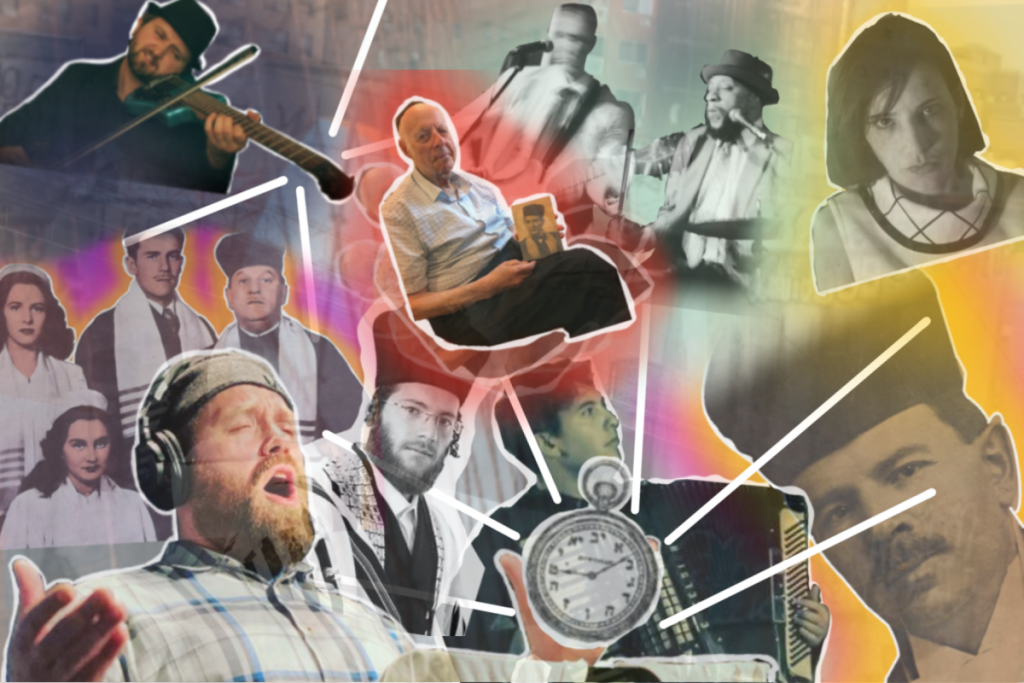By Jeremiah Lockwood, Research Fellow
Lowell Milken Center for Music of American Jewish Experience
“Conversations” aims to open a dialogue about the persistence of memory and change in Jewish music and the use of the sounds of the past to address keenly felt needs in the present.
After the plague God spoke to Moses and to Elazar the son of Aaron the priest saying, Take a census of the whole community of the children of Israel…(Numbers 26:1-2)
In the Biblical book of Numbers, in the weekly Torah reading referred to as Parshah Pinchas, it is recounted how at the end of the plague that afflicted the Jews during their wandering in the desert, God instructed Moses to take an account of the people. Moses conducted a census to learn about the state of the community after a time of crisis. While our present-day plague is not exactly a closed chapter, we are beginning to see a loosening of the strictest restrictions and crisis in the world of music and musicians. Live music is beginning to blossom, and music venues and worship services are returning, often modified as hybrid digital events, exposing artefacts of the pandemic period that continue to mediate between in-person and online experience. In this moment of transformation, new uses of technology and reinvigorated approaches to older musical styles are creating new sounds and new forms of community. The disorienting present, with its multiple forms of sociality and its dizzying shifts in assessment of risk and social need, offers a vital opportunity to observe musical communities in a moment of reorganization and a trenchant vantage point from which to study and reappraise the recent past.
Conversations is a new series that will appear on a weekly basis over the course of the next year, presented by the Lowell Milken Center for Music of American Jewish Music at The UCLA Herb Alpert School of Music. Conversations will offer stories, sounds and ideas meant to stimulate conversation, new listening and debate about the life and meaning of American Jewish music. Beyond the platform itself, we look forward to interacting with you, the readers, through social media threads, specially convened Zoom meetings, and, with a bit of good fortune, in-person conversations.
Conversations will also host regular guest posts from young scholarly voices in the fields of musicology and Jewish Studies. Daniela Smolov Levy, lecturer at the University of Southern California, will be giving a five-part lecture series at UCLA this year on the role of Jews in opera. Smolov Levy will be accompanying each of these lectures with a post reflecting her research in this exciting and under-researched area. Conversations will also present work by Simone Salmon, whose research on Sephardi music and the post-Ottoman diaspora sheds much needed light on a vital Jewish music scene. These scholars, and other guest authors to be announced, will broaden the scope of this year-long undertaking, opening up a network of diverse but interconnected musical worlds.
As chief author of Conversations and research fellow with the Lowell Milken Center, I will present regular updates on my research. My posts will focus on three main areas:
1. The Kwartin Project. Zawel Kwartin was one of the first international stars of Jewish music and a paradigmatic figure in the immigrant era of cantorial gramophone recording stars. I am currently translating Cantor Zawel Kwartin’s Yiddish language autobiography, Mayn Lebn (My Life), and Conversations will feature regular updates from that project. Through translation and commentary on the texts I hope to approach questions about khazones that have gone largely unexplored: What were the material and social conditions that went into the production of the cantorial “golden age” and the pop culture phenomenon of star cantors? And, How did the star cantors reflect the Jewish sonic past on record and in what ways did they construct an image of the past that later generations came to accept as a reality?
2. The Malavskys: a family portrait. The Malavsky Family Choir, led by Cantor Samuel Malavsky (1894-1983) and featuring the outstanding vocal soloist Goldie Malavsky (1923-1995) was a standout act in the fertile scene of mid-20th century Jewish American pop culture. While straddling the line between liturgy and borscht-belt entertainment, the Malavskys found a space in which to challenge normative gender ideologies that regulated who could claim authority as a ritual leader by staging ritual events in non-synagogue spaces. The Milken Archive of Jewish Music has recently acquired a family scrapbook and a cache of recordings. I will be curating excerpts from the Malavsky scrap book and recordings and offering commentary and context. Through a discussion of these artefacts, I will explore the questions: How did Jewish Americans use music, and especially sacred music, to create spaces in which “outsiders” could become authorities? And, How did changing attitudes towards gender and sexuality in the early 20th century inform the sound and culture of cantorial music?
3. Dispatches from Brooklyn. These posts will offer regular updates from the multiple worlds of Jewish music in Brooklyn, NY, where I live. Sites of research will include cantorial lessons with elder cantors in unregulated, non-institutional spaces; the klezmer scene; and the world of Chassidic music. Through these ethnographic sketches I hope to open conversations about the persistence of memory and change in Jewish music and the use of the sounds of the past to address keenly felt needs in the present.
Klezmer picnics in Prospect Park, Brooklyn, have been an informal site of music making and community during the pandemic.
Over the course of this upcoming academic year, Conversations will offer a kind of musical census. Through reports from the world of present-day artists and stories culled from the archive, Conversations will illuminate the lineages and help imagine the futures of American Jewish music. We look forward with excitement to this undertaking and the multiple conversations we hope it will inspire.
